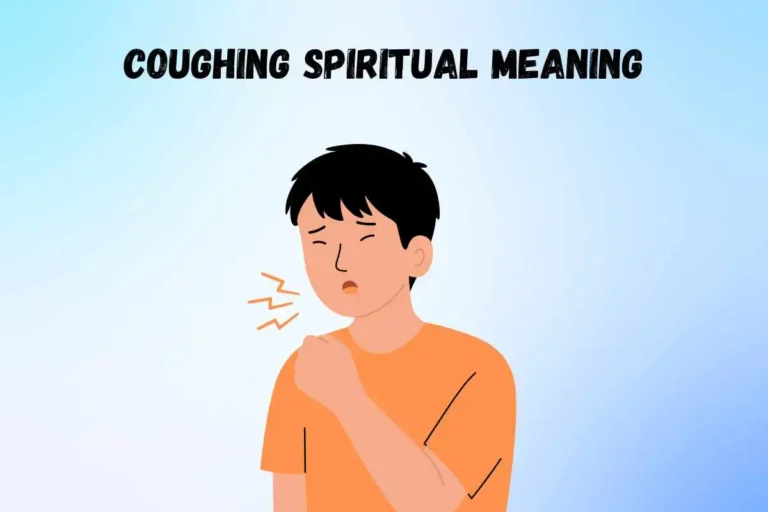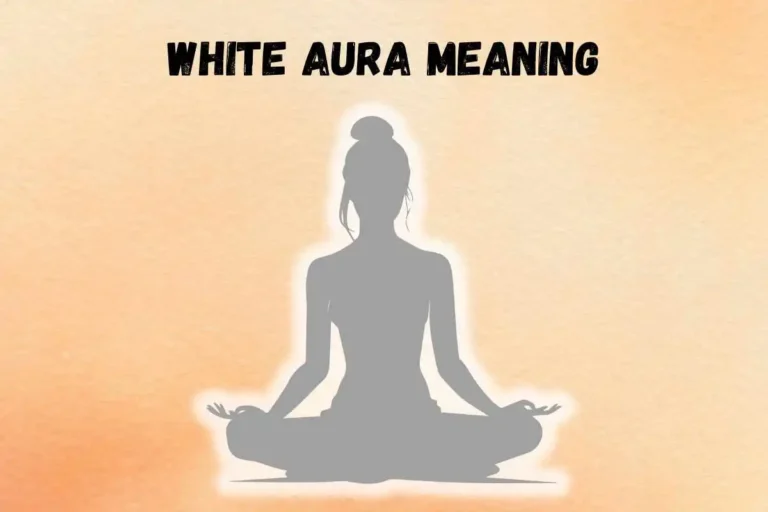Vertigo Spiritual Meaning, Reasons & Healing

Have you ever experienced that dizzy feeling called vertigo, where everything seems to spin around you? Vertigo isn’t only a physical problem; it can also have spiritual meanings and reasons behind it.
There are two main types of vertigo: central and peripheral. Central vertigo occurs due to issues in the brain or spinal cord, while peripheral vertigo comes from the inner ear.
Understanding the spiritual aspects of vertigo can help us see how it connects to our overall health and feelings.
In this blog, we will explore the fascinating topic of vertigo, uncovering its spiritual meanings. We’ll also share some healing techniques that can help!

Vertigo can have a deeper meaning, often showing that our feelings are out of balance or that our mind is trying to send us important messages. This can happen because of unresolved emotions, blocked energy, or a need for change in our lives. While practices like meditation and energy healing can help fix these issues, it’s important to see a doctor if the dizziness doesn’t go away, as it could be a sign of something more serious.
What Does Vertigo Symbolize Spiritually?
Vertigo and dizziness can mean more than feeling unsteady; they can hold deeper spiritual meanings. These feelings are often connected to our inner selves and can be linked to things like anxiety or problems with the Ajna chakra, also known as the third eye.
When someone feels dizzy, it might show that they are experiencing a lot of anxiety or are confused while going through changes in their life or spirituality. These sensations can act as signs from the spiritual world, reminding people to pay attention to their thoughts and let go of habits that don’t help them grow anymore.
In some beliefs, feeling dizzy might indicate that a person is struggling to connect what they feel spiritually with what is real in everyday life, showing the importance of balance. Sometimes, these experiences can point to emotional issues or past hurts that need to be addressed to heal properly.
When someone has a sudden rush of spiritual energy, like during a Kundalini awakening, they might feel vertigo, which signals the need for support during such intense moments.
Feeling dizzy can also be part of a bigger journey of spiritual growth, marking changes in how someone sees the world and themselves. This journey often involves learning to trust the process of their spiritual path.
Lastly, dizziness can be a sign of spiritual imbalance, suggesting that practicing meditation and self-reflection can help restore harmony and peace.
Spiritual Meanings for Vertigo and Dizziness
Vertigo and dizziness can sometimes be linked to spiritual reasons. These feelings might occur when someone is pondering big questions in life or experiencing anxiety. To help, talking to a mental health professional and trying practices like meditation can be really beneficial.
1) Thinking About Life’s Big Questions
When people start wondering about life and what happens after we die, they might feel dizzy. This happens because these questions can be heavy and confusing. If someone is grieving the loss of a loved one or has received a tough health diagnosis, these feelings can intensify.
In such times, talking to a mental health expert can really guide someone through their emotions and offer support.
2) Understanding Anxiety
Anxiety can also cause dizziness or a sensation of spinning. During an anxiety attack, individuals may feel like they are falling, which can be very frightening. These feelings can become so intense that some may avoid going out due to fear of experiencing another episode.
Identifying the root cause of anxiety is crucial. Treatment might include therapy or medication focused on calming the mind.
3) Feeling Unbalanced in Life
Some experts in natural medicine believe that vertigo may indicate an individual feels unsteady in their life. This feeling can arise from major changes or uncertainty about feelings and choices. When people struggle with these issues, they may experience dizziness or feel off balance.
To help restore balance, naturopaths often recommend practices like meditation and self-reflection.
4) Connecting with Nature
Feeling dizzy can sometimes signal a need to reconnect with nature. Spending time outdoors can help ground someone and provide a sense of peace. Nature has a unique ability to calm the mind and help one feel centered.
Whether it’s a walk in the park or simply sitting under a tree, being in nature can help clear away confusion.
5) The Search for Inner Peace
When someone feels restless or unhappy inside, it can lead to dizziness. This inner turmoil can make it challenging to focus and find calmness. Practices like meditation or mindfulness can assist in achieving inner peace.
Learning to breathe deeply and focus on the moment often eases those dizzy feelings.
6) Feeling Overwhelmed
Life can sometimes feel too hectic and overwhelming. When there’s too much happening at once, it can lead to dizziness. This is common when juggling school, friends, and family responsibilities.
Taking breaks and organizing tasks can help reduce those overwhelming feelings and prevent dizziness.
7) Energy Blockages
Some believe that dizziness may occur when an individual’s energy is blocked. This indicates that the natural flow of energy in the body isn’t moving smoothly. Practices like yoga or energy healing can help clear these blockages.
By focusing on breathing and movement, a person may feel more balanced and less dizzy.
Emotional or Metaphysical Reasons for Vertigo
Vertigo is often thought to come from problems in our inner ear, but there’s more to the story. Sometimes, feelings and emotions can play a big role too. Let’s explore some of these emotional reasons.
1) Needing love and acceptance but not knowing where to look
When someone feels dizzy, it might be because they really want love and acceptance but don’t know how to get it. This feeling of longing can create confusion and sadness inside.
If a person doesn’t know where to find the love they need, their mind can become overwhelmed. This emotional struggle can show up as physical symptoms, like dizziness. The body and mind are connected, and when one feels lost, the other might feel it too.
Searching for love is important, and when we can’t find it, it makes us feel unbalanced. Understanding this can help us realize why we might feel dizzy sometimes.
2) Wanting to be in charge of everything
Some people feel they need to control everything around them, from their schoolwork to their friendships. This urge to manage every little detail can lead to stress.
When we try to control too much, we may feel like things are spinning out of control. This internal battle can cause our bodies to react physically, making us feel dizzy.
It’s important to let go a little and trust that some things don’t need to be controlled. Finding balance between control and letting go can help us feel steadier both in our bodies and minds. Recognizing this can make a difference in how we deal with stress.
3) Avoiding an uncomfortable truth
Sometimes, we might avoid facing things that make us uncomfortable. These could be truths about ourselves or situations we don’t want to confront.
Ignoring these feelings doesn’t make them go away; instead, it can create a sort of fight inside us. This inner struggle can lead to dizziness as a way of reminding us to face those truths.
If we push our feelings aside, it can feel like our world is out of balance. Acknowledging these truths can help us feel more grounded and less dizzy. Facing what’s uncomfortable can be hard, but it’s a step towards feeling better.
4) Fear or worry
When we are afraid or worried about something, it can really affect us. These strong emotions can make us feel unsteady and dizzy.
For example, thinking about a big test or a sports game can cause stress that makes us feel off-balance. Our minds and bodies are connected, and when worries take over, our bodies might react with physical sensations.
Understanding that fear can lead to dizziness helps us see how important it is to manage our worries. Taking time to relax and talk about our fears can help us feel more stable. Finding ways to calm our minds can keep dizziness at bay.
Connection Between Vertigo and Spiritual Awakening
When someone goes through a spiritual awakening, it can affect them in many ways, including how they feel physically. Some people report experiencing dizziness or a lightheaded feeling during or after these moments. This might happen because their body is letting go of old energy and making room for new, positive energy.
As this energy changes, it can create feelings of confusion or dizziness. Usually, these sensations don’t last long and fade away as the person acclimates to the new energy. However, there’s no solid science proving that spiritual awakenings actually cause vertigo.
Still, some individuals feel lost or disoriented because their perspective on life has suddenly shifted. This change can be significant, and both their minds and bodies need time to adjust.
There are a couple of reasons why someone might feel dizzy during a spiritual awakening.
1) Sudden Rush of Spiritual Energy
Sometimes, a person might experience an overwhelming wave of spiritual energy. This can be so intense that their body doesn’t know how to handle it initially. It’s similar to feeling dizzy after running really fast; the body needs time to adapt to this new energy level.
2) Imbalanced Chakra System
A spiritual awakening can also disrupt the balance of the body’s chakra system. Chakras are energy centers in the body, and when they become unbalanced, it can lead to physical issues, including vertigo. When someone’s consciousness shifts quickly, their body might react in unexpected ways as it adjusts to this new awareness.
If you start to feel dizzy or nauseous during a spiritual awakening, it’s important to listen to your body. Pay attention to any other symptoms you may be experiencing. If you’re concerned, consulting a doctor can help ensure there’s nothing else affecting your health.
Vertigo: Causes, Symptoms, Diagnosis, and Remedies
Vertigo is the sensation that you or the world around you is spinning or moving, even when you’re standing still. This strange feeling can occur for various reasons, mostly related to issues in your inner ear, which helps with balance.
One common cause of vertigo is Benign Paroxysmal Positional Vertigo (BPPV), where tiny crystals in your inner ear get knocked out of place, resulting in dizziness.
Other causes of vertigo can include Meniere’s disease, where excess fluid builds up in the ear, or vestibular neuritis, which occurs after a viral illness. Another cause is labyrinthitis, where the inner ear becomes inflamed. When experiencing vertigo, individuals often feel dizzy, nauseous, unsteady, and anxious about falling.
If someone frequently experiences vertigo, it’s crucial to see a doctor. The doctor may conduct tests to determine the cause, which can include specific movements or scans. To alleviate dizziness, various treatments are available.
One option is the Epley maneuver, which helps reposition those tiny crystals. Medications can also assist with symptoms. Additionally, practicing balance exercises and making lifestyle changes, such as reducing caffeine and managing stress, can be very beneficial.
In rare cases, if other treatments are ineffective, surgery might be an option. Understanding vertigo can help individuals manage it better and feel more comfortable.
Spiritual Healing for Vertigo and Dizziness
Spiritual healing for vertigo and dizziness combines both physical activities and spiritual practices. First, you need to figure out why you feel dizzy. Sometimes, it could be because you’re dehydrated or due to an underlying medical issue.
If the dizziness continues, it’s really important to talk to a doctor. Doing simple exercises can help improve your balance and make dizziness less bothersome. These exercises can support your overall spiritual journey by helping you feel more grounded.
There are techniques, like moving your eyes in certain ways or practicing relaxation methods that can help too. If those don’t work, lying down with your eyes closed for a little while might provide relief. Visiting a chiropractor or a craniosacral therapist can be helpful, as they focus on making sure your body is aligned.
Having a well-aligned body can reduce symptoms of vertigo, making you feel better. Grounding exercises and body scan meditations are great for connecting with your body. These practices help you feel stable and centered, which is really important when you’re dealing with dizziness.
Practicing breathing exercises can help you relax and keep your energy safe. Finally, taking care of yourself is key—eating healthy, setting personal goals, and being kind to yourself can really boost both your physical and spiritual health.
Final Words
To understand vertigo, we need to look at what causes it. One common reason people feel dizzy is dehydration, which means not drinking enough water. To avoid this, it’s important to drink plenty of fluids, especially when exercising.
Additionally, activities like meditation, rhythmic exercises, breathing techniques, and yoga can help calm the mind and reduce stress, which might lessen vertigo symptoms. While some people might think spiritual awakening is linked to their dizziness, there could be other reasons too.
If someone frequently experiences vertigo that affects their daily life, they should talk to a doctor to check for any health issues.
You Might Also Like
1) Spiritual Meaning of Back Pain: Lower, Mid & Upper
2) 10 Spiritual Meanings of Insomnia (Can’t Sleep at Night)
3) Spiritual Meaning of 6 Fingers and Having Six Toes
4) Mole on the Neck Meanings for Females & Males





